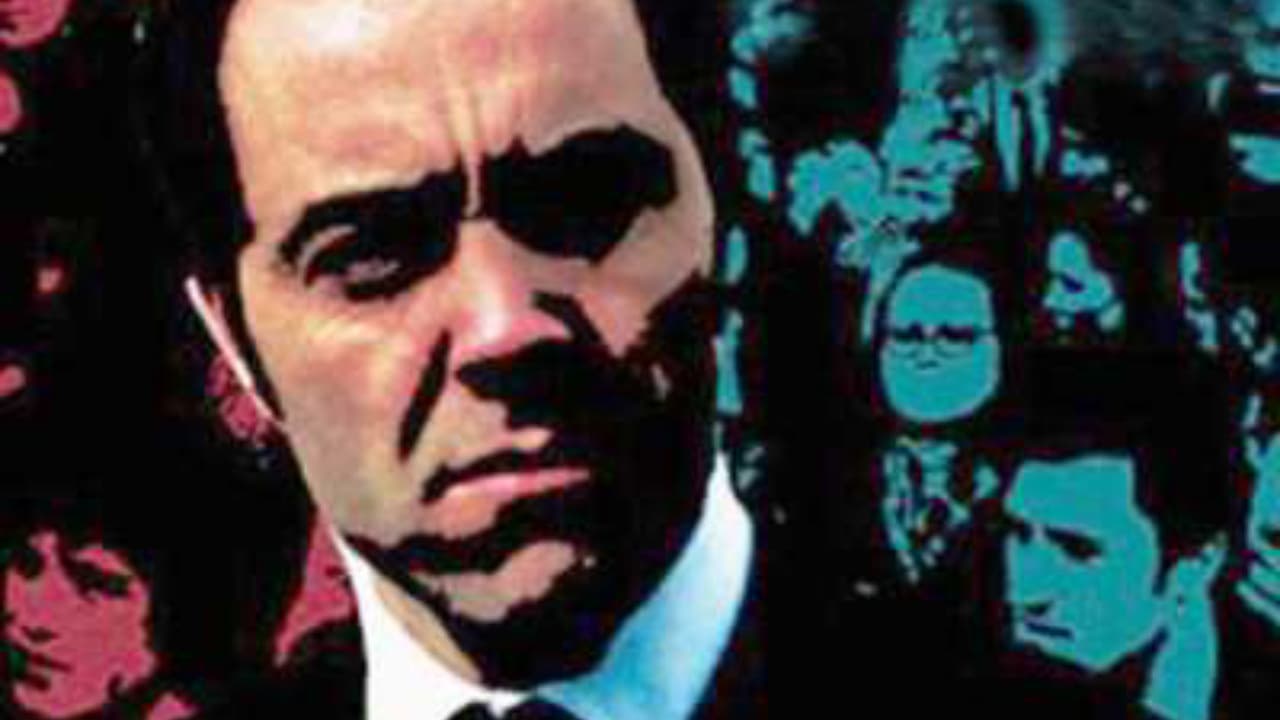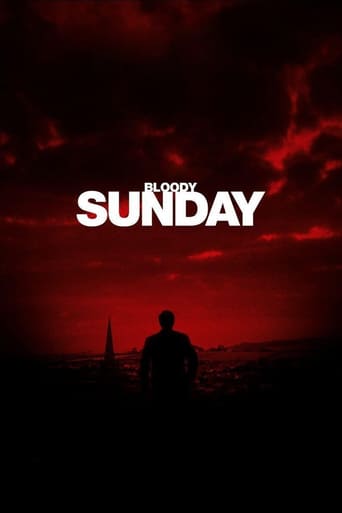Prismark10
Paul Greengrass has made a provocative drama documentary of the events in Derry in January 1972 which is to this day still an open wound.The film with its numerous quick edits covers events over 24 hours from Saturday evening with its main character Ivan Cooper (James Nesbitt), a Protestant MP for the Social Democratic Labour Party and leading a peaceful anti-internment march which developed into the Bloody Sunday massacre on 30 January 1972.Most of the 10,000 marchers that day would be Catholics, some with IRA links. Cooper wanted to develop a pan religion civil rights movement to counteract the violent nationalist and loyalist groups.Intercut with Cooper organising the march are the British troops setting up roadblocks and barricades to prevent the march going much further due to newly introduced restrictions on marches.When some rebellious youth start to to throw bricks at the troops they are met with a disproportionate response as the army shoot at some of the protesters which lead to thirteen people being left for dead.The events ended up being a prime propaganda tool for the IRA. It turned many of the Irish against the presence of the mainland troops and set back the civil rights movement and any hope of a peaceful resolution to the Troubles.Greengrass's documentary approach does not leave much for characterisation. Apart from Cooper, many of the people are painted in broad strokes with Tim Piggott-Smith's Major Ford being the main hissable villain.Greengrass also does well to recreate the early 1970s setting and look. The editing might be jarring but the art direction, costumes and make up are well realised.
jono M
Bloody Sunday is about the shootings dead of 14 civil rights marchers by the British army in derry during the conflict in NI. 90% of those killed in the conflict were killed by paramilitaries. However film-makers have decided to make a film about one of the few atrocities committed by the security forces.The film is co-produced by an IRA sympathiser called Don Mullan. He has described the IRA campaign as a reaction to the violence of the state.The propaganda line put forward by this film is that the nationalist community tried peaceful means for achieving civil rights but were just met by state violence and that the British crushed NICRA (as the CRM was called).This contradicts with the facts. In order to get the viewer to believe this the film tells a number of lies 1. Ivan cooper says at the beginning of the film that there were no reforms introduced prior to 1972. This is a flat out lie. Loads of reforms had been introduced beginning in 1968. One man, one vote had been introduced, the B specials had been abolished for example.2. Ivan cooper says at the end of the film that the civil rights movement had been destroyed. This is a flat out lie also. NICRA disbanded voluntarily in the early 1980's. The viewer is therefore misled into believing that there were no longer any peaceful alternatives to violence.The film is extremely anti-British. One piece of anti-British hate-mongering is the message at the end that those who planned the operation were honoured by the queen. It is true that two of the senior officers in charge of the operation were later honoured by the queen. However no one who carried out any of the shootings or ordered any killings were honoured by the queen.Do not believe the lies in this film. The brits were working on setting up a power-sharing arrangement at the time. What was planned was an arrest operation not a massacre as is implied by this film. Everyone of NICRA's demands were introduced by 1975. There were other options available to nationalists other than violence, contrary to the lies in this film!
gpeevers
Director Paul Greengrass's retelling of the events in Derry, Northern Ireland on January 30, 1972, where an ostensibly peaceful march for civil rights ended in bloodshed.The facts are that 13 protesters were shot and killed by a British Paratroop regiment brought into try and capture supposed hooligans using the march as cover. In the immediate aftermath the Army claimed they were fired upon and simply responded with appropriate force. The eyewitnesses including some members of the media tell a different story now corroborated by at least one of the soldiers indicating that there was little if any provocation. This is the perspective from which the story is told. It is also the consensus of the film makers that this event did much to escalate the "Troubles".The film gives glimpses of individuals amongst both the protesters and British Army. Our main protagonist is one of the marches primary organizers Ivan Cooper (James Nesbitt) a Protestant and a Nationalist who strongly extolled non-violent protest. We also focus on one of the young protesters and several member of the British Army some of whom are more sympathetic than others.The film employs a simple looking documentary style, with hand held cameras and no additional lighting. The color is de-saturated in what has become a short hand style of retelling historical events. The events in the story transpire over a 24 hour period.The cast features some talented veteran actors alongside a large number of non-actors, including locals from Derry who were there on that day or in several instances relatives of some of the victims. Also many of the soldiers in the film were former soldiers, some having served in Northern Ireland and at least two of which were actual Paratroopers.
jaredmobarak
When Paul Greengrass was named as the new director in the Bourne series, people had no idea who he was. When he began filming United 93, people wondered what a Brit was doing telling the story of a plane full of American heroes. The answers to these questions always seemed to make mention of the film Bloody Sunday. That reasoning, upon seeing Greengrass's first major film, holds up strongly. What is now my favorite film of his, the story of that fateful day where a peaceful civil rights march ended in bloodshed and murder by the government, is portrayed as realistically and heart-wrenchingly as possible without it being actual documentary footage. It takes guts being English and deciding to take on a tale of injustice by his people over the Irish. When I saw United 93, I left the theatre thinking that no one could have done it any better; this film paved the way, ushering in a new artist able to put emotion and tragedy on screen without ever letting even one moment seem false.The hand-held filming technique that he has utilized so well in his subsequent films is on display throughout. Always inside the action, the camera follows Parliament member Ivan Cooper while he goes around Derry readying his constituents for their peace march to the civil rights rally. He is a man that is loved by all for both his charisma and his willingness to be among the people during their fight for the rights they deserve. The younger generation and high ranking members of the IRA know him and respect what he is doing, but they feel peace won't cause change, that they must fight fire with fire. Because of this, and some previous altercations that left British troops injured or killed, the English government has decided to go in and make an example of their power. What begins as a covert operation, to accompany their roadblocks and strong numbers around the town, with a mission to grab IRA members on their wanted list, soon escalates to a massacre of civilians at the hands of adrenaline pumping soldiers who had to wait too long to get out into the action.All the acting is phenomenal across the board. Young Gerry, played by Declan Duddy, has just gotten out of jail and decides to go with friends to the march, knowing he is risking getting caught again. Duddy does well portraying the love for his girlfriend and his desire to stay outside for her; he knows when he has gotten too close to the troops and tries to go with Cooper's group to the rally, but his mates won't let him. When his cousin is killed with a bullet from the troops, troops whom were supposed to be equipped only with rubber, all that goes away. The horror and shock of what has begun to transpire never leaves his face or actions and what eventually happens to his character is truly tragic and disgusting on the part of the British. On their side, both Nicholas Farrell and Gerard McSorley are great as the men behind the scenes, listening to what is happening on the streets. McSorley's police chief tries to tell Farrell that they should just let the march happen because the kids out there could be too dangerous otherwise. Farrell speaks of how they will use minimum force and throughout the course of events, he constantly tells his men to stand down while they take it upon themselves to move when they have the chance. He is powerless from his position and he knows what kind of tragedy has occurred and that it will end up being on his watch. Standing idle for too long made the soldiers antsy and when they had the opportunity they took it. After the incident, the conversations among the men are atrocious. Bragging about how many they got and the invigorating feeling of it all is appalling, however, not as bad as the one soldier among them who felt remorse at all points, even screaming about the ceasefire while his compatriots continued mowing down innocents. What he ends up doing could possibly be looked upon as worse than the men who actually killed people; his soldier that could have been a voice of truth ends up being a disgusting display of hiding ones' guilt.Shining above all, though, is James Nesbitt as Cooper. An actor that doesn't get enough recognition or work this side of the Atlantic, despite nice turns in Waking Ned Devine and Millions, he is fantastic. His modesty and compassion with the people is contagious at the beginning. He goes through the streets telling the troops that the march will be going, but it will be peaceful, and with every young hooligan he passes he goes to them and says to calm down and join their non-violent demonstration. He tries his hardest to use his political position to stop the riot that begins, but his idealism never prepares him for what happens. What began as Irishmen throwing rocks became two innocents shot down in cold blood. When the hooligans run away to the rally, all hell breaks loose with women and children needing to take cover from the gunfire. Nesbitt's reaction when his friend Barney tries to surrender is heart-breaking and when he goes to the hospital after it all, he is absolutely genuine in his grief. The glue that holds everything in the movie together, Nesbitt's concluding speech to the media is hard to watch. A man full of hope for freedom has finally had his eyes opened to the violence and physical tyranny at hand. He is correct when he says that the incident ended the civil rights movement, from that point on there could be no more peaceful marches. Bullets needed to be matched with bullets and young men on the fence of battle were finally swayed to join the war full steam ahead.

